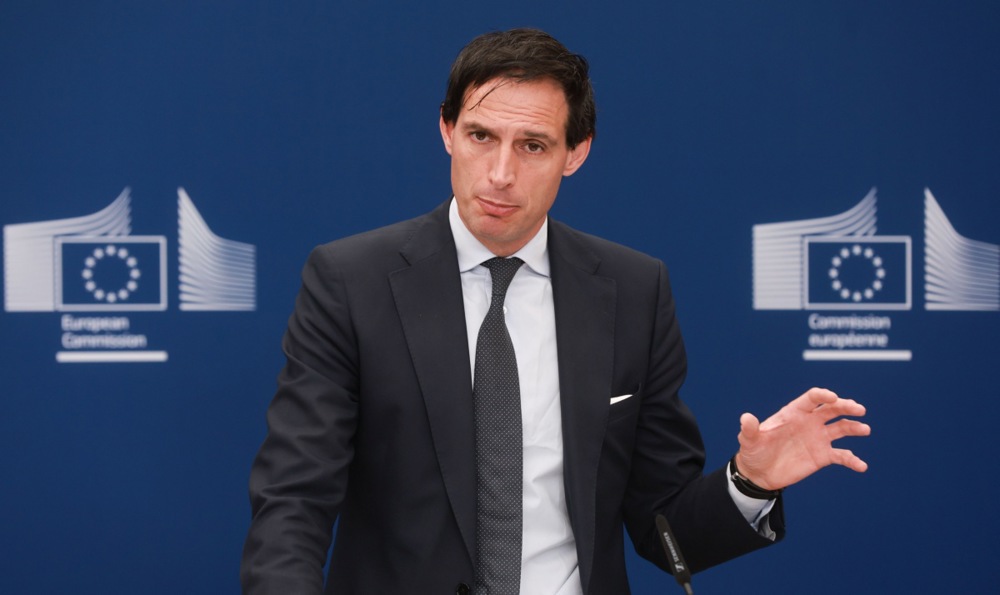Under the looming shadow of negotiations over the European Union’s next long-term budget, the European Commission has quietly released a proposal to overhaul the bloc’s tobacco taxation rules.
The move was closely tied to the ambitions of Europe’s Beating Cancer Plan.
The proposed revision of the Tobacco Taxation Directive (TTD) was designed to bring the current framework into line with proclaimed public health goals by aligning taxation more closely with the perceived health risks of tobacco and nicotine products.
To reduce the disparities between member states, the EC wanted to raise minimum tax rates on tobacco across the EU. The updated minimum rates would be adjusted based on each country’s economic conditions and overall price levels.
According to the EC, this would lead to a more equitable and effective public health strategy.
However, many observers noted that the EC’s main goal was to divert part of the new tobacco tax revenues directly to its own budget, creating a new stream of “own resources” for the EU independent from national contribution.
Novel products, such as e-cigarettes, heated tobacco and nicotine pouches, would also fall under the scope of the TTD directive. These fast-growing segments of the nicotine market would, for the first time, face EU-wide minimum excise duties under the proposed rules.
Finally, the EC sought to tighten control over raw tobacco, which can be diverted into the illicit supply chain.
To address this, the proposal would extend the EU’s electronic monitoring system for excise goods (EMCS) to include raw tobacco, enhancing the ability of member states to track, detect and combat illicit trade.
The European Union’s long-awaited review of the Tobacco Products Directive is now expected to conclude in mid-2026, yet another delay in one of the bloc’s most contentious health programmes. https://t.co/M0JfBWwyqR
— Brussels Signal (@brusselssignal) July 15, 2025
In its reasoning for the proposal, the EC said it reinforced “the commitment towards safeguarding and improving the overall health of citizens, as well as mitigating distortions caused by cross-border trading of products in the scope of the Directive”.
The body said the high number of smokers in the EU was still a matter of significant concern, with 26 per cent of the overall EU adult population and 29 per cent of young Europeans aged 15-24 still smoking.
Europe wanted this number to fall to under 5 per cent overall.
The EC introduced a separate legislative proposal — the TTD Own Resource (TEDOR) — to divert part of the new tobacco tax revenues directly to the EU’s budget, creating the new stream of “own resources” for the EU independent from national contributions.
Estimations about possible revenues ranged between €10 and €20 billion. Despite that, many member states opposed the idea, both in principle because it affected national sovereignty and also because it tobacco tax was an important source of income.
The European Policy Information Centre (Epicentre), a Brussels-based think-tank, warned in an in-depth July 16 report by Dr Christopher Snowdon that the proposal could fuel the black market, as higher taxes had done in many western European countries already.
“Excessive taxation risks undermining revenue and fuelling organised crime, with Europe advised to avoid the violent outcomes seen in Australia’s illicit tobacco trade,” the think-tank report said.
It was noted that for years, tobacco taxes appeared to offer a win–win for governments by raising revenue while plausibly reducing cigarette consumption.
They have, though, become a less reliable source of revenue and have encouraged criminal activity as taxes continued to rise, Epicentre said.
“Governments might tolerate a decline in tobacco duty revenue if it were due to lower smoking rates, but there is nothing to be gained from pushing smokers towards the black market,” Snowdon’s report read.
“Europe has not yet experienced a full-scale ‘tobacco turf war’ as seen in Australia, where more than 200 tobacconists have been fire-bombed and several people have been murdered.
“Violence is endemic in organised crime, and European politicians should be wary of adding fuel to the fire,” it said.
COMMENT: The European Commission's plan to raise taxes on cigarettes and e-cigs is a bureaucratic overreach that will backfire. It will fuel crime, hammer the poor, and erode personal freedom, writes @BogdanosK. https://t.co/I0ZAuqysVV
— Brussels Signal (@brusselssignal) June 2, 2025





